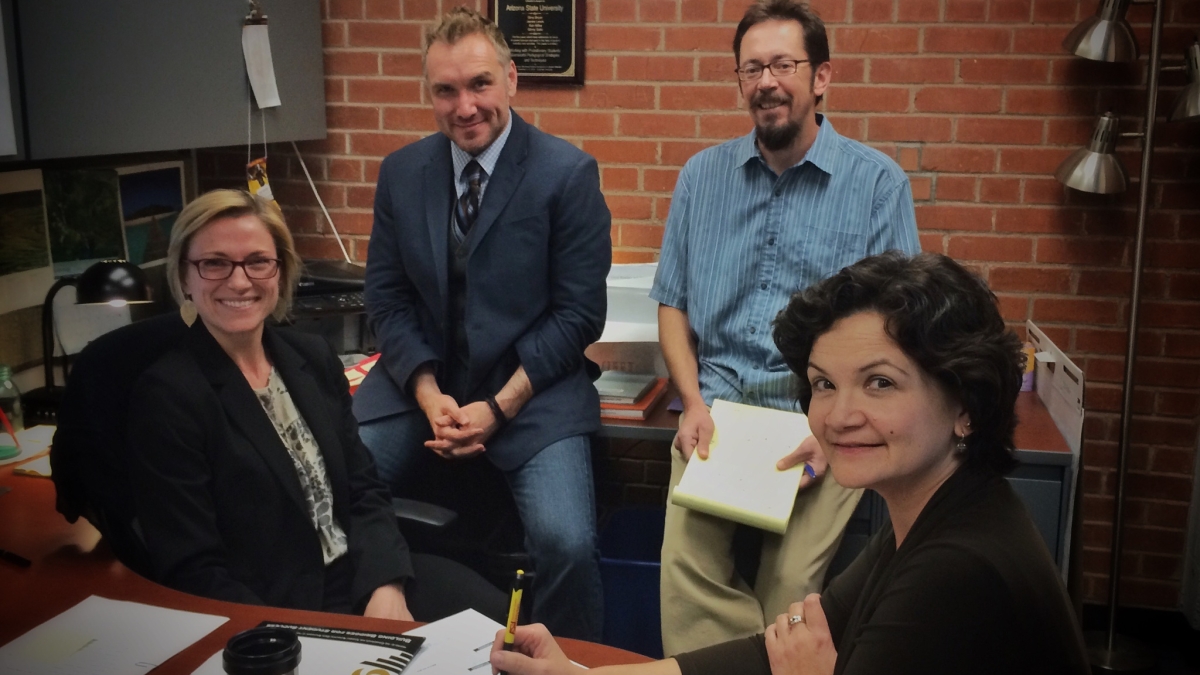ASU course garners national attention for building mindset for success

Looking to improve your academic performance? Begin by looking inward.
That’s just one of the takeaways from the data coming out of Arizona State University’s innovative, one-credit course, UNI 220: Academic Refresher, which has gained national attention for its approach – and successes – in helping struggling students regain a positive academic trajectory.
“Rather than focusing on narrow skills like note-taking and preparing for exams, our emphasis is on building emotional intelligence, greater self-awareness and a mindset that supports resilience,” says Gina Beyer, director of Academic Success Programs in the College of Letters and Sciences and UNI 220 course manager.
“Poor grades are usually a symptom of something else that’s going on – relationship troubles, financial pressures, old habits, fears and self-defeating thoughts that sabotage success,” continues Beyer. “Over the course of the semester, students realize it’s not about ‘my professor, my test, my job, my parents – it’s often my thinking and perceptions of all those things that are the barriers to reaching goals.’”
In spring 2012, ASU’s Faculty Senate voted to make UNI 220 a required course for all undergraduate students placed on academic probation, but enrollment is open to anyone.
Data collected from the University Office of Institutional Analysis indicates that probationary students who successfully completed the course in fall 2012 increased their end-of-semester GPA, on average, by .85, and their cumulative GPA by .43. In terms of retention, 75 percent were still enrolled as of fall 2013 – a rate that is very high compared with probationary students nationally.
The course’s approach and positive outcomes were the focus of an award-winning paper by Beyer and fellow College of Letters and Sciences instructors James Lewis, Ken Miller and Ginny Saiki. It was one of three papers selected for recognition from the hundreds presented at the 10th annual National Symposium on Student Retention in Louisville, Kentucky, in November. More than 250 institutions were represented at the conference.
Their paper, “Working with Probationary Students: Successful Pedagogical Strategies and Techniques,” was honored with the Director’s Award because it “best addressed an issue of current interest and need in the field of student retention and success.”
“We discovered at the conference that our pedagogical approach was virtually unique among the attending institutions,” says Beyer.
Shifting the mindset
Immersed in a curriculum and learning environment anchored in psychological and motivational theory, undergraduates in UNI 220 do weekly self-reflective journaling, where they can explore academic, professional and personal issues in depth and get confidential feedback from instructors.
The discussion-based curriculum helps students discover ways they can use their successes and strengths to overcome obstacles and setbacks, and know when to ask for help.
“We might come at the topic of time management by starting with a general discussion about how people manage stress,” explains Beyer. “As people begin tossing out their go-to behaviors for dealing with stress or avoiding bad feelings, suddenly the class will arrive at an ‘aha!’ moment when someone points out, ‘Hey, that’s everything I do when I procrastinate!’”
These emotionally charged moments drive more meaningful learning and more meaningful change, she says, as opposed to a directive, like “don’t procrastinate.”
“Time management is more of an emotional intelligence issue than a calendar management issue,” observes Beyer.
Enrollments are capped at 21 students per section, which leverages the relationships and rapport formed in the group and builds a feeling of connectedness.
“Engaging with classmates from across every demographic and life situation, students begin to lose that ‘nobody understands all that I’m going through’ feeling. They also begin to hold each other accountable,” Beyer says. “At the start of class, somebody might text a missing classmate and ask, ‘Where are you?'”
In course evaluations, UNI 220 students often express an appreciation for how much they’ve learned about themselves and for the help in learning to be proactive about their academic responsibilities.
“When I started this class, I accepted I had to take it and I was determined to do better, but I still failed to realize I was responsible for my poor grades,” one student reported. “I was blaming it on life. This class helped me learn that yes, we have no control of life, [but] we control how we react to it.”
Many express a degree of surprise about how much they enjoyed a course that they first resisted.
One student wrote: “I won’t lie, I hated this class the first day. I hated that my professor asked us to be self-reflective, and I flat-out refused to do it at first. But I finally started to realize that I was not the only one going through a lot of crap. And I started to listen more and participate more. I can’t believe I’m saying this, but by the end I was actually sad the class was ending. I learned so much. I had no idea how much I would get from this class.”
Beyer, who has a background in psychology and behavioral therapy, says that, hands down, this is the most rewarding work she’s ever done.
“Students have come back and said, 'You’ve changed the way I’m parenting my children,' or 'changed the way I’m dealing with some emotional or mental health issues,'” she marvels. “We facilitate learning that helps you do your work in college, but it’s also how to take responsibility for your choices and have better life outcomes.”